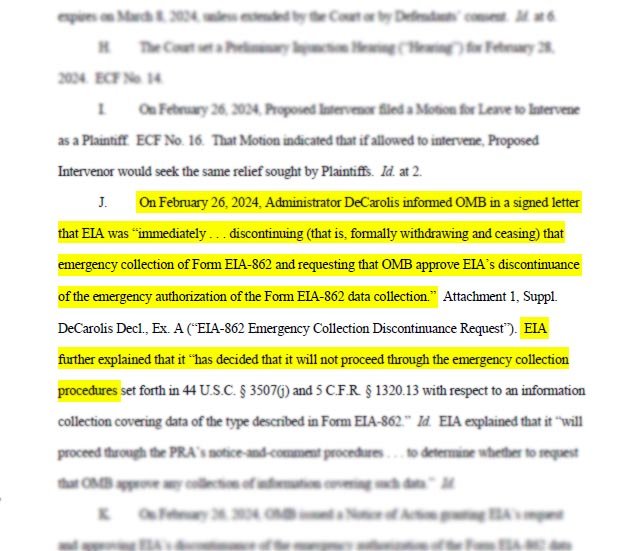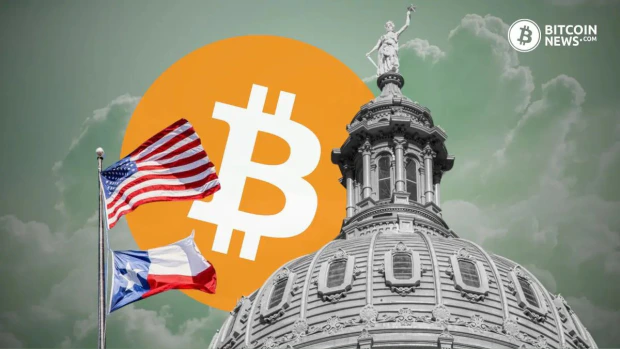The U.S. government has halted its efforts to conduct an emergency survey on the energy usage of Bitcoin mining operations following legal pushback from industry players.
This decision comes after several lawsuits were filed against the Energy Information Administration (EIA) by prominent Bitcoin mining firms and associations. On March 2, the US Department of Energy, the EIA, and the Office of Management and Budget (OMB) reached an agreement with Texas Blockchain Council (TBC) and Riot to halt data collection from Bitcoin miners.

Legal Backlash Leads to Survey Halt
The U.S. Department of Energy (DOE) and the Energy Information Agency faced legal challenges from Riot Platforms, Inc., and the Texas Blockchain Council, leading to the withdrawal of the emergency data collection plan. The plaintiffs argued that the survey did not comply with regulatory procedures and could cause harm to the industry.
Key Points from Legal Dispute include:
- The lawsuit questioned the rapid deployment of the survey, stating it did not comply with the Paperwork Reduction Act.
- Emergency procedures used by the DOE were criticized for bypassing standard notice and comment procedures.
- The settlement agreement includes the destruction of all collected data and the initiation of a non-emergency survey process with a 60-day public comment period.

The filing mentioned:
“Defendants agree that EIA will allow for submission of comments for 60 days, beginning on the date of publication of the New Federal Register Notice.”
Industry Concerns Addressed
Bitcoin mining, known for its energy-intensive nature, has faced scrutiny for its potential impact on electricity grids. However, industry players argue for flexibility in operations, stating they can shut down during peak demand to alleviate grid pressure.
Related reading: Texas Cold Snap: Bitcoin Hashrate Drops by 25%
Therefore, in the end, the Biden administration’s attempt to gather data on Bitcoin mining energy usage was met with resistance from industry players and lawmakers. Energy information agency agreed to destroy all collected data and restart the survey process, allowing for public feedback.
The filing highlighted:
“Defendants agree that EIA will destroy any information that it has already received in response to the EIA-862 Emergency Survey. If EIA receives additional information in response to the EIA-862 Emergency Survey, EIA will destroy that data.”
Texas Blockchain Council stated:
“Before considering any similar requests in the future, the EIA will HAVE TO follow standard notice and comment processes,”
Government and EIA’s Justification for Survey
The government energy agency initiated the survey as an emergency measure, citing concerns over bitcoin’s rising price incentivizing more miners to come online and increasing energy consumption. They argued that this could strain electrical grids, especially during extreme weather conditions.
They asserted that Bitcoin mining “results in demand peaks that affect system operations and consumer prices.”
The Chamber of Digital Commerce criticized the survey, stating:
“While we support reasonable data sharing, this survey and the emergency justification were not reasonable, leading to an imminent threat of irreparable harm to the U.S. cryptocurrency mining industry.”
Final Thoughts
The decision to halt the Bitcoin mining survey reflects the government’s cautious approach in regulating the Bitcoin industry. The legal dispute highlights the importance of due process and public engagement in developing policies that affect industry growth and operation.
As the industry continues to evolve, the resolution of conflicts like this will shape the regulatory landscape in the United States, impacting both industry players and consumers alike.










